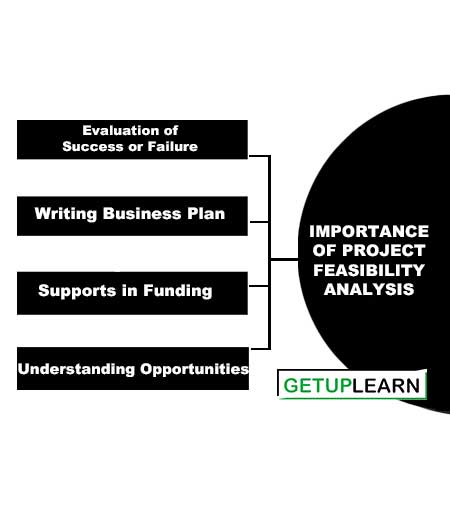Table of Contents
What is Project Feasibility Analysis?
The dictionary meaning of Feasibility is “Viability”. Project Feasibility analysis helps in understanding whether the project idea that is conceived is viable.
Project feasibility analysis will make the critical evaluation of the proposed business opportunity and thereby aid in understanding challenges, hurdles, and difficulties in the way of doing business. It should not happen that a project is launched and after some time entrepreneur closes it by not finding its viability.
Therefore, it is necessary to understand the viability of the business while it is planned and proposed. Closure of a running business can lead to a huge sum of losses.
So as to prevent such losses and damages, feasibility analysis is a must. Project feasibility analysis will support entrepreneurs in terms of understanding the competitive edge prevailing in the market, financial opportunities and limitations, operational difficulties, and much more.
Project Feasibility Analysis
A Project Feasibility analysis will include the following:
- Market Feasibility Analysis
- Technical Feasibility Analysis
- Financial Feasibility Analysis
- Economic Feasibility Analysis
- Managerial Feasibility Analysis
- Social Feasibility Analysis

Market Feasibility Analysis
Since the success of any enterprise depends upon its ability to market its products/services, the lending institution should first of all pay meticulous attention to this aspect. The survival of any business depends upon its earning capacity which in turn depends on the volume of sales.
Again, marketing is the only activity that brings revenue while all other activities involve expenditures. Hence, a detailed market analysis should be undertaken estimating the supply and demand for the product. In fact, the potential of the market constitutes the determinant of probable rewards for an entrepreneur.
Technical Feasibility Analysis
Technical feasibility simply refers to the adequacy of the proposed plant and equipment to produce the product as per the required norms. This aspect requires a careful examination and a thorough assessment of the various inputs of the project like land, machinery, trained labor, transportation, fuel, power, etc.
It also requires the analysis of the know-how necessary to run the project and whether the entrepreneur possesses that knowledge or whether he is going to procure from outside. Sometimes, a project may require collaboration.
In such a case, the terms and conditions of the collaboration should be examined. In the case of foreign technical collaboration, the legal provisions prevailing in the country in relation thereto should also be analyzed.
Financial Feasibility Analysis
Finance is the most important prerequisite to establishing an enterprise. Hence, the appraisal of the financial viability of the project assumes much importance in a project appraisal. This requires the scrutiny of the following:
- Cost of Project and Means of Financing
- Cash Flow Estimates
- Projected Balance Sheets
Economic Feasibility Analysis
It is absolutely essential to see that the project is economically viable. The economic viability depends upon its profitability. A project without adequate profits cannot be commercially viable. Hence, the economic viability can be assessed through projections of profitability for a period ranging from 3 to 10 years.
The profitability of a project should be established on a long-term basis. Thus, the economic feasibility analysis includes the analysis of the requirements of raw materials, level of capacity utilization, anticipated sales, anticipated expenses, and probable profits.
Managerial Feasibility Analysis
The appraisal of the management is indeed considered the touchstone of term credit analysis. It is so because the success or failure of any enterprise depends upon the direction and efficiency of the management.
In the absence of managerial competence, the projects which are otherwise feasible may fail. On the other hand, a poor project may turn out to be a successful one with efficient managerial ability.
Any business should be socially responsible. In fact, business is not merely a profit-making occupation but a social function that involves certain duties and requires that appropriate ethics are followed.
It must accept its obligation to be socially responsible and to work for the larger benefit of the community. It has a lot of responsibility to the community around its location and to the society at large.
Importance of Project Feasibility Analysis
Some of the key points that reflect the importance of Project Feasibility Analysis are described as follows:
- Evaluation of Success or Failure
- Writing Business Plan
- Supports in Funding
- Understanding Opportunities

Evaluation of Success or Failure
It’s a systematic process that will help in understanding the benefits and limitations of the project at each step and thus will help in evaluating the success or failure of the proposed project.
Writing Business Plan
Feasibility analysis will assist in writing the business plan document the areas where threats and challenges are observed and assist entrepreneurs in making a decision on whether to continue the project or not.
Supports in Funding
External agencies like banks, and financial institutions may read the feasibility analysis report and based on that they can evaluate the financial soundness of the proposed project. Thus funding decisions of these institutions are backed by the project feasibility analysis.
Understanding Opportunities
Feasibility analysis will help the entrepreneurs in seeking new opportunities for the business. Market feasibility, Technical Feasibility, Economic Feasibility, and other feasibility analysis dimensions can help entrepreneurs find new business opportunities or new products or services that can fit in the competitive environment.
FAQs Section About the Project Feasibility Analysis
What are the stages of project feasibility analysis?
The following are the stages of project feasibility analysis:
1. Market Feasibility Analysis
2. Technical Feasibility Analysis
3. Financial Feasibility Analysis
4. Economic Feasibility Analysis
5. Managerial Feasibility Analysis
6. Social Feasibility Analysis.
What is the importance of project feasibility analysis?
The following is the importance of project feasibility analysis:
1. Evaluation of Success or Failure
2. Writing Business Plan
3. Support in Funding
4. Understanding Opportunities.




